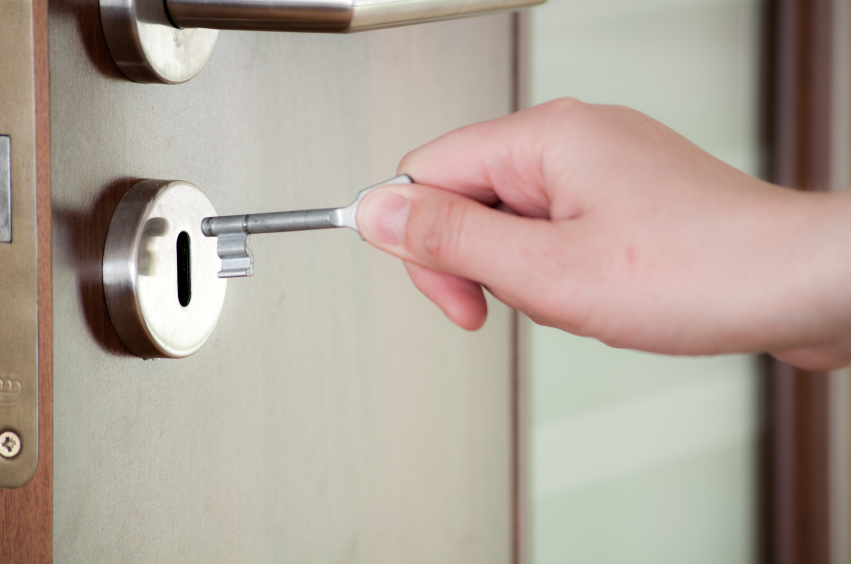If you have ever been locked out of your office or needed to enhance security at your business premises, you’ve likely considered the expertise of a commercial locksmith. But what sets a qualified locksmith apart from others? The answer often lies in commercial locksmith certifications. This article will cover every aspect of these certifications and why they matter for all business owners and facility managers.

Understanding the Role of a Commercial Locksmith
Before we dive into commercial locksmith certifications, it’s important to understand what a commercial locksmith does. Specializing in installing, repairing, and maintaining locks and security systems for businesses, these professionals ensure safety for commercial properties. Their job can vary widely from simple lock installations to more complex electronic security system installations.
Types of Locksmith Services
Commercial locksmiths may handle different categories of services:
- Basic lock installation and repair.
- High-security lock installation.
- Access control systems.
- Emergency lockout services.
Understanding these services helps you know when you might require a certified locksmith, especially for advanced jobs. Office lockout tools can be an essential part of their toolkit.
Importance of Commercial Locksmith Certifications
So, why are locksmith certifications crucial? In today’s world, where security is paramount, commercial locksmith certifications offer assurance of a locksmiths expertise and credibility. They typically cover various aspects, including licenses, knowledge tests, and hands-on experience. Consumer Reports also emphasizes the importance of certified locksmiths in safeguarding business properties.
Boosting Trust and Credibility
Certification indicates that a locksmith has met industry standards, boosting their credibility. Customers feel more secure knowing their property is in the hands of someone qualified.
Ensures Up-to-Date Knowledge
The industry is always evolving. Certified professionals are required to keep up with the latest trends and technologies, ensuring better security solutions for clients.
Getting Certified: What It Entails
Acquiring a commercial locksmith certification involves several steps, usually including coursework and examinations that focus on the specialized skills required in the trade. This might involve traditional methods as well as newer technologies, such as biometric systems.
Different Types of Certifications
Various industry bodies offer certifications, often focusing on specialized areas:
- Basic locksmith certification offers fundamental knowledge and skills.
- Advanced locksmith certification focuses on high-security, electronics, and other advanced systems.
- Specialty certification focuses on niche areas, such as safes or access control.
Understanding the Certification Processes
The journey to become a certified commercial locksmith generally involves a series of steps such as courses, examinations, and sometimes apprenticeships or hands-on training. This ensures they are fully competent to handle different scenarios that might arise in a commercial setting.
Coursework
This typically covers topics like locksmithing basics, high-security locks, and modern security systems. Some programs even offer advanced studies in digital security systems.
Examinations
Both written and practical exams are part of the certification process. They test the locksmiths knowledge, skill, and ability to apply learning to real-world scenarios.
Common Myths About Locksmith Certifications
There are several misconceptions surrounding commercial locksmith certifications:
- Myth: Any locksmith can meet your needs. Reality: Certified locksmiths have verified skills. Locked office cabinet scenarios require certified expertise.
- Myth: Certifications are a waste of time. Reality: They verify a locksmith’s knowledge and competence.
Benefits of Hiring a Certified Commercial Locksmith
Why hire someone certified? Apart from the obvious knowledge and skill, certification ensures legal obligations are met, reducing liability and ensuring prolonged security.
Legal Compliance
Hiring certified professionals means that they are bound by specific ethical and legal standards, which protects you from potential legal issues.
Enhanced Security Systems
Certified locksmiths are more likely to offer state-of-the-art security systems, like those that protect against advanced threats, ensuring your business is well-protected. To learn more about how certified specialists can help, visit lockout drills.
Popular Certification Bodies
People when selecting locksmiths prefer choosing those who are certified via recognized bodies. Some well-known organizations include:
- Associated Locksmiths of America (ALOA)
- Safe and Vault Technicians Association (SAVTA)
- Institution of Certified Locksmiths (ICL)
How to Verify a Locksmith’s Certification
Its always a good idea to verify a locksmith’s certification before hiring. You can ask for their credentials or check through the organization’s official website.
How Commercial Certification Differs from Residential
While both require extensive knowledge and skills, commercial locksmithing often deals with more complex and sophisticated security systems tailored for business needs.
Equipment and Tools
Commercial locksmiths employ advanced tools and techniques, focusing more on electronic security, CCTV, and access control compared to residential locksmiths.
Planning to Become a Certified Commercial Locksmith?
Interested in the locksmithing profession? Planning to embark on this journey can be rewarding both personally and professionally. Many specialized locksmith schools offer training programs for beginners.
Career Opportunities
From offering basic repair services to setting up high-end security systems, the locksmith profession provides many opportunities for specialized niches and steady growth.
Dedicated Training Programs
Several programs are dedicated to helping aspiring locksmiths gain the expertise necessary, setting a strong foundation in both theory and practical skills.

FAQ Section
1. What is a commercial locksmith?
A commercial locksmith specializes in securing business properties through lock installation, repair, and maintenance services.
2. How long does it take to get certified?
The time to get certified varies but generally includes course completion and examinations, ranging from a few months to a year.
3. Are certifications mandatory?
While not mandatory, certifications demonstrate credibility and ensure the locksmiths skills are up to industry standards. Hiring certified can offer peace of mind.
This article contains affiliate links. We may earn a commission at no extra cost to you.





